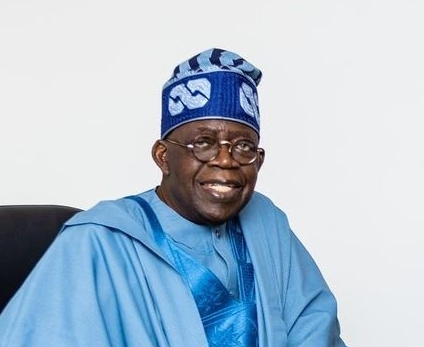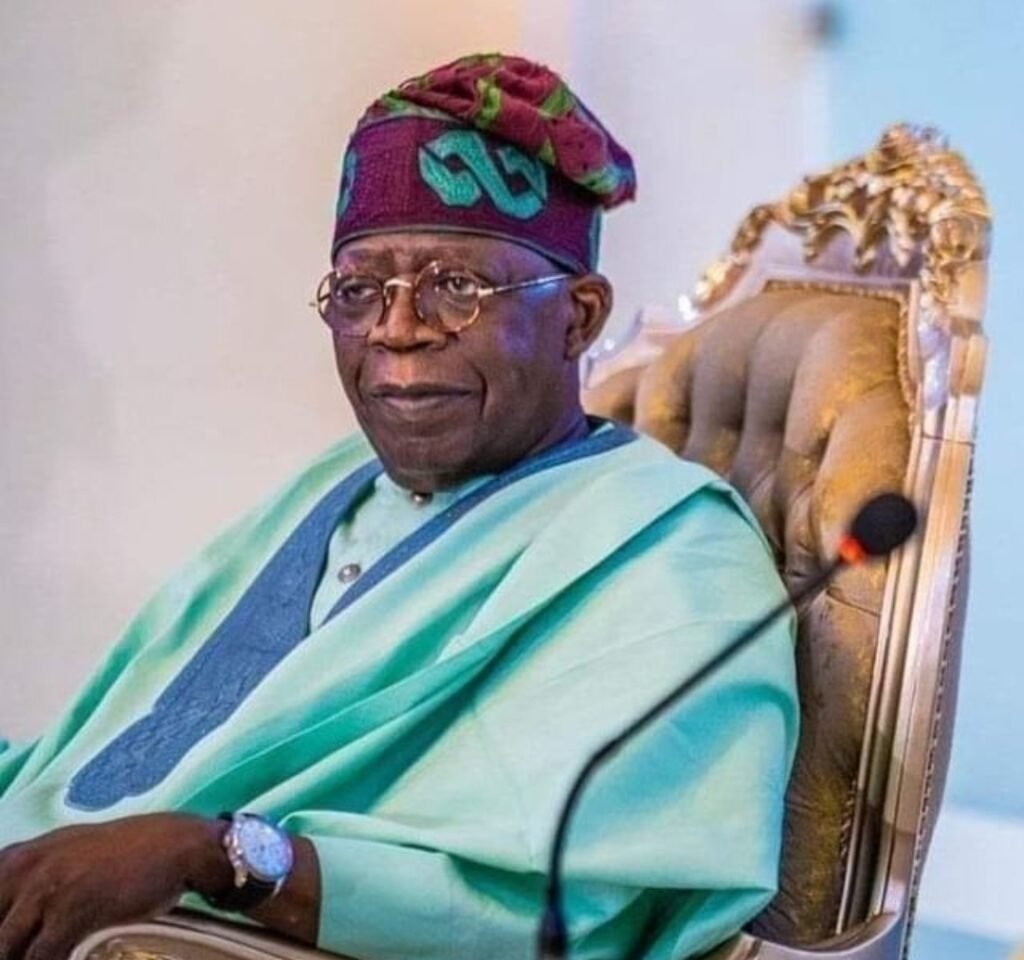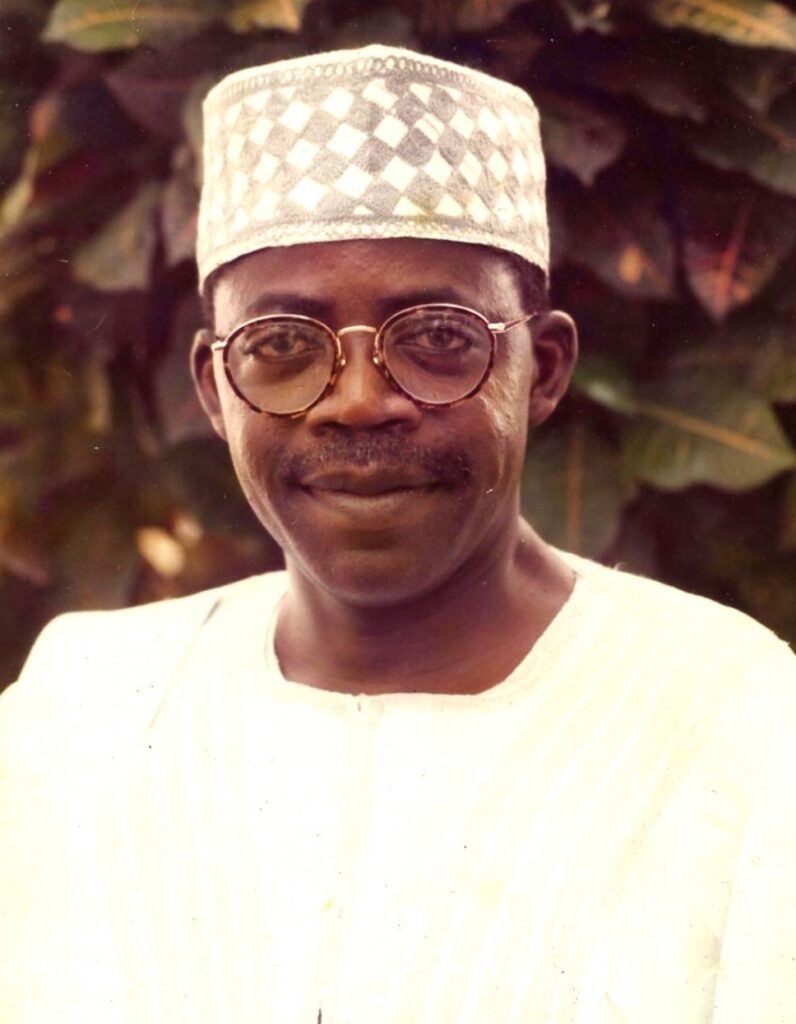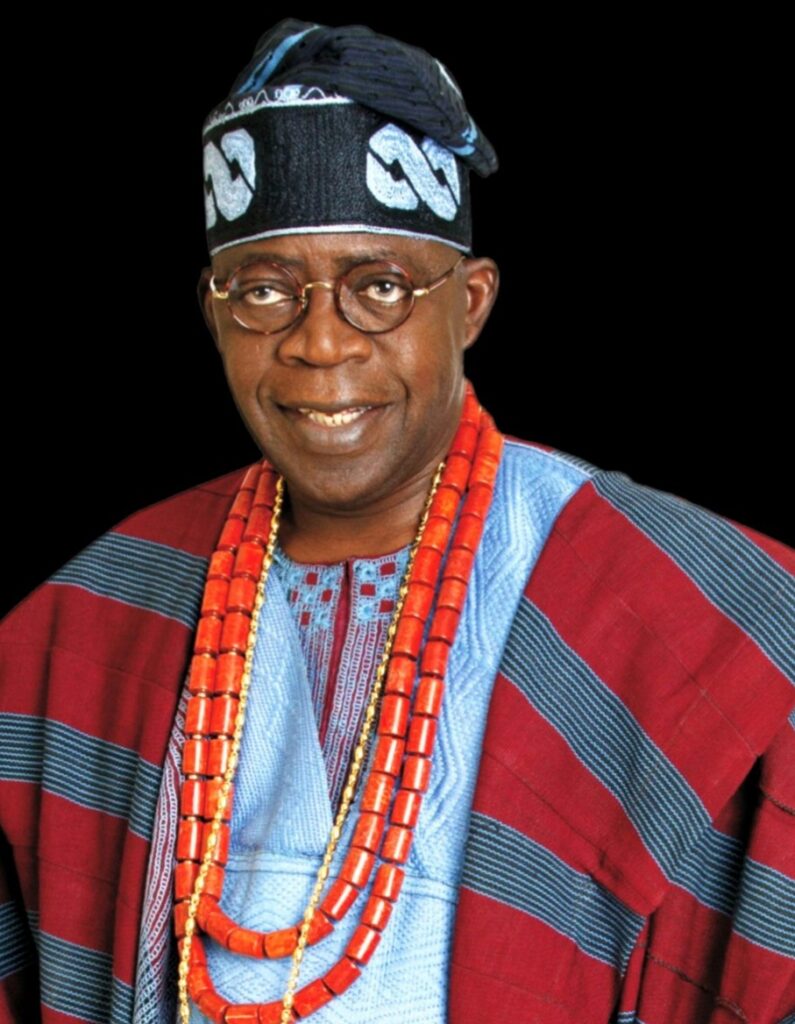THE MAN CALL JAGABAN – ASIWAJU BOLA AHMED TINUBU



Asiwaju Bola Ahmed Tinubu was born in Lagos, Nigeria to the illustrious Tinubu Family. He attended St. John’s Primary School, Aroloya, Lagos and Children’s Home School in Ibadan, South West of Nigeria. He attended Richard Daley College, Chicago Illinois, where he earned a place in the honors list of the College. He subsequently proceeded to Chicago State University, Illinois where he graduated with a Bachelor’s degree in Business Administration (Accounting and Management). At Chicago State, he won the Outstanding Student’s Award, The University Scholar’s Award and the Certificate of Merit in Accounting and Finance.
On his arrival in the U.S. in 1975 and with the support of an ever-encouraging mother, this courageous youth, motivated by an unflinching zeal to succeed, did not mind taking on menial jobs such as dishwashing, night-guard and cab-driving to help pay his way through school.




The brilliance of this young Nigerian showed in his ability to make the honours’ list of Richard Daley College and to ultimately graduate with honours from Chicago State University in 1979, earning a Bachelor’s Degree in Business Administration (Accounting and Management). During his first year at Chicago State, young Bola was given the rare honor to help tutor other students of his Faculty in remedial classes. Many of his colleagues at the university attributed their improved grades to his tutorial assistance.
Throughout his undergraduate years, Bola was on the Dean’s List and was honoured with the Outstanding Student’s Award, the University Scholar’s Award and the Certificate of Merit in Accounting and Finance. He graduated Sumna Cum Laude for scoring 3.54 out of possible 4.0 GP.
As a harbinger of greater things to come, Bola contested and won his first election as the President of the Accounting Society of the institution in his final year at the University
Upon graduation, Bola Tinubu was recruited and hired by the renowned accounting firm Arthur Anderson, Deloitte Haskins and Sells (now called Deloitte Haskins and Touche) and GTE Service Corporation – the largest Communication and Utility Company in the United States of America.
At Deloitte Haskins and Sells, the young and professional Bola broadened his experience by participating in the auditing and management consultancy services of General Motors, First National Bank of Chicago, Procter and Gamble, International Harvester, General Electric and other Fortune 500 firms. Recognizing his talent, Deloitte often appointed Bola, though a relatively recent hire, as the lead member of several important auditing teams.
On his return to Nigeria and with his international experience in financial management, Bola joined Mobil Producing Nigeria as a Senior Auditor and would climb to become the company’s Treasurer.
As a person who never forgot his humble beginnings and his ties to the community, Asiwaju Bola Ahmed Tinubu has always views communal service as important. Even while at Mobil, he spearheaded several important fund-raising efforts for community development programmes in Lagos State. He also leads Primrose Group, a political action organization pushing for fundamental changes in the politics of Lagos State.In time and seeing the need for fundamental progressive change in Nigeria, Bola Tinubu opted to fully engage in public service thus putting aside his lucrative position at Mobil. His first foray into active politics was as a founding member of the defunct Social Democratic Party (SDP). In 1992, he was elected as a Distinguished Senator of the Federal Republic Nigeria representing Lagos West Senatorial District. At the National Assembly, he excelled as the Chairman of the Senate Committee on Banking, Finance, Appropriation and Currency – a foremost committee of the Senate.With the annulment of the June 12, 1993 presidential election and the extension of military rule, Asiwaju Bola Ahmed Tinubu became a founding member of the famous pro-democracy group, the National Democratic Coalition (NADECO) which, for several years, confronted the military regime in order to establish a democratic Nigeria. Bola Tinubu would suffer arrests and detentions, harassments and constant threats to his life forcing him to flee Nigeria. He, did not give up the struggle. He became one of the leading lights of NADECO in exile; he continued to agitate for democratic governance and the rule of law in Nigeria.
NADECO’s efforts would ultimately succeed. As the curtain closed on military rule, Bola Tinubu returned home in 1998 heeding the call for all Nigerians to join in the national reconciliation and development. He became a founding member of the progressive-leaning political party, Alliance for Democracy (AD) He would win the party nomination as its gubernatorial candidate for Lagos State. Winning the 1999 election, he began what would become his two-term service (eight years) as the Governor of Lagos State.
Upon assuming office in May 1999, Bola Tinubu attracted the best talent into his administration. Together they drafted a visionary yet practical Action Plan for the state.
The result was the Ten-Point Agenda focusing on education, health care, job creation/poverty alleviation, power and water supply, public transportation/traffic management, physical planning/environmental renewal, infrastructure renewal, justice/law and order, food security and public sector reform.
Tinubu’s visionary administration improved and reformed governance by creating new ministries such as Housing, Physical Planning Sports and Youth Development as well as Women Affairs and Poverty Alleviation. Throughout his tenure, Asiwaju Tinubu brought seasoned and accomplished technocrats into government as Commissioners and Special Advisers in their areas of expertise. Through meticulous planning and disciplined implementation, the Asiwaju Tinubu administration increased the budget of Lagos State from N14.200 billion in1999 to N240.866 billion in 2007 so that the state could provide more services to its people. The Tinubu Administration consistently maintained an annual budgetary ratio of at least 60-40% in favor of Capital over Recurrent expenditure to ensure rapid infrastructure development.
A first class financial strategist, Asiwaju Tinubu, through creative and innovative policy, took Lagos from a yearly Internally Generated Revenue of N14.64 billion in 1999 to N60.31 billion in 2006. By March 2007, the state had achieved a monthly Internally Generated Revenue of N8.2 billion.
This impressive performance achieved by the Tinubu Administration in Lagos State did not happen by chance. It was due to carefully thought out and effectively implemented policies such as the introduction of the Electronic Banking System/Revenue Collecting Monitoring Project, computerization of the revenue collection process, introduction of Electronic Tax Receipts, re-organization and professionalization of the former Board of Internal Revenue now the Lagos State Internal Revenue Service, tax administration reforms and the creation of robust data base of tax payers.
Lagos State under Asiwaju Bola Ahmed Tinubu became a pace setter in prudent yet innovative public sector financial management. In September, 2002, Lagos State was the first government in Nigeria to raise funds from the capital market for infrastructure development. This was in recognition of the fact that long-term funds were necessary for long-term projects. The state raised a N15 billion floating rate redeemable bond to prosecute such development projects as roads construction, millennium housing, water works, construction and rehabilitation of courts, waste management projects and millennium class rooms among others.
Aided by his keen political instincts, Bola Tinubu perceived the threat of electoral manipulation in 2003 by the ruling party, PDP. Where his colleagues in the Southwest let down their guard and failed to campaign assertively for reelection, Tinubu mounted a brave campaign based on his reforms and achievements. The other AD governors in Ondo, Osun, Ekiti, Ogun and Oyo all lost their re-election bids in 2003 to the PDP.
Bola Tinubu was the last man standing for the AD. From his Lagos redoubt, he would successfully challenge the federal government on many political and legal fronts. Because of his efforts during this period, i has been said that Bola Tinubu is perhaps the single person most responsible for preventing Nigeria from becoming a de facto one-party state.
He survived as the only AD governor in the 36 states of the federation. However, he never got discouraged or overwhelmed. Tinubu led the way in strengthening the progressive political opposition. By 2007, progressive politicians in Southwest Nigeria had regained their footing. To become a formidable opposition once again. Bola Tinubu was instrumental in creating a new progressive political platform, the Action Congress (AC), which later became the Action Congress of Nigeria (ACN).Tinubu’s sagacity had protected Lagos State from PDP heavy handed dominance. But it was his vision that enabled him to revive the ideals and political organization that would later restore progressive governance throughout the Southwest and into Edo state as well. .When the history of this period is written, Tinubu will stand tall as the man most responsible for the resurrection of progressive politics in the Southwest and in Nigeria. He will be known as the man who proved to be the greatest stumbling block to the PDP’s stated goal of one party rule in near perpetuity. Those who value democracy in Nigeria must also value the contributions made by Asiwaju Tinubu.In 2013 and in contemplation of that 2015 elections, Asiwaju became the chief proponent of a merger of his party with two other opposition parties – the Congress for Progressive Change (CPC) and the All Nigeria Peoples Party (ANPP) – in order to end the failing, irredeemably corrupt PDP regime.
The three parties formed the All Progressives Congress (APC). Due to his special role in the formation of the party, Tinubu was given the title of National Leader. Here, he also sacrificed his personal political ambition to devote himself to strengthening the party and giving it a national focus. Making history, the APC won the 2015 presidential election, the first time an opposition party had dislodged a sitting president in Nigeria. Tinubu put a winning touch to the APC. Today, the APC is truly the government party after winning the presidency. The majority of the two houses of the National Assembly, governorship of 22 states, and the majority of seats in most state legislatures.
Asiwaju Bola Tinubu is happily married to Oluremi Tinubu, the current Senator representing Lagos central, who is a foremost advocate for social welfare and the rights as well as a respected educator, administrator, philanthropist and Officer of the Order of the Niger (OON). Their union is blessed with children and grandchildren.
